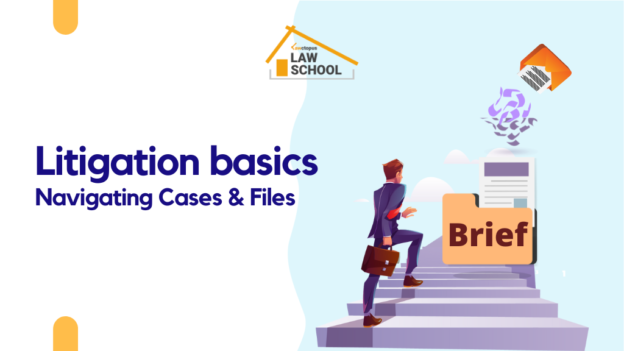About the Course
What happens when you are out of law school and inside a courtroom? How do you transform from a law student to a competent litigator?
When you join a law office for the first time as an intern or a junior associate, it is natural to feel lost and unable to understand what’s expected of you. It doesn’t matter if you memorized every section of every bare act in your syllabus at the time of exams, you could still be considered ill-prepared, inexperienced and incompetent in the field of litigation.
Your seniors or even colleagues will not have the bandwidth to train you or explain the intricacies of the practice before assigning you complex tasks, given their unending workload and mere 24 hours a day.
This course is designed to equip you with the necessary skill-set to become an asset to your workplace by being well-prepared with your case file even if you hold no prior experience. When you are just starting out, you will not be expected to devise a strategy for the case or recite the legal provisions, but you will be expected to be extremely well-prepared with the case file.
This course will teach you a simple process through which you can convert bulky case files into short case notes.
These case notes will eventually help you think like a lawyer as you begin to understand the nuances of various kinds of cases, thereby giving broad leeway to sharpen your legal acumen. They will also help you cast a good impression on the judges at the time of hearing as being well prepared allows you to help save the court’s precious time.
How will the Course help you?
- You will learn the skill of properly reading Case Files which are the foundation of legal practice.
- Condense the Case Files into proper notes.
- Make you well-versed in the proceedings of a court.
- Be well-prepared in court but also help ease the burden of your seniors.
- Be deemed fit as a team player, quickly gaining the trust of your seniors and getting meaningful work.
Syllabus:
The course gives you a foundational and smooth understanding of the courtrooms and case files, replete with examples, illustrations and sample templates of various kinds of court briefs.
The course contains 4 modules
Course Overview
Module 1: Introduction
- Get introduced to the Course
- You will learn about the level of preparedness of an Advocate in a Courtroom on the Judge who is hearing the case.
Module 2: Courtroom 101
- You will be acquainted with the basics of functioning of a Courtroom.
- Bain an insight into the various stages of court proceedings (both civil and criminal cases).
- Know what is the right nomenclature to be used for parties in litigation.
- How to use the E-Courts Websites to check case status, previous orders as well as cause lists.
- Get introduced to the concept and significance of case files.
Module 2 A: Introduction to Case Files
- What to prepare for before starting creating court briefs.
- Delve deeper into case files by discerning their arrangement
- Know the difference between a lawyer’s case file & a Judge’s case file and how to start reading them properly
- Explore the meaning of notes/briefs, their utility, relevance and significance to a lawyer
Module 3: Sample Templates and Repository
- Comprehensively go through various kinds of briefs/notes that can be prepared
- Learn from various sample templates
- Get access to an indicative checklist to help you review your brief, once created
- Know the do’s and don’ts of making a case brief
Module 4 – Preparing Court Briefs
- Connecting the Dots
- Preparing Notes : Briefs
- Paraphrasing for your Brief
- Things to Remember & Mistakes to Avoid
- Things to keep in mind while preparing Court Briefs : Notes
- Preparing Digital Case Files in the era of Virtual Courtroom
Module 4A- Guide to Making Briefs
- Civil Case Part 1
- Civil Case Part 2
- Civil Case Part 3
- Criminal case brief
Add-on modules:
- Reading resource of Lawctopus Law School’s Course on Drafting Bail Applications.
- Career Aid webinars on CV making, LinkedIn profile building and career options in the legal field.
Self-Assessments: Each Module carries a set of 5 MCQs for self-assessment enabling you to zero in on your key takeaways from the Module.
COMPULSORY ASSIGNMENT
Prepare a brief based on a dummy case file. Get feedback from our subject matter experts!
Who is this course for?
- Undergraduate students of law.
- Anybody looking to make a career in litigation
- Young lawyers (both litigators and those working in law firms)
Details
Duration: 4 weeks
Course fee: Rs. 2800 (inclusive of GST)
Life-time Access
By purchasing this course, you are granted lifetime access.
Life-time access means that the course access will be available to you as long as the company continues to offer the course or remains in existence. In the event the course is discontinued or the company ceases operations, access to the course will no longer be available
Mode of learning
- Completely online
- Recorded video lectures
- 4 live lectures
- Text-based modules and reading resources
- Online-based forum to clarify doubts
- Compulsory assignment
- Self-assessment exercises
- Live and exclusive webinars on careers in legal research, CV-building, etc.






